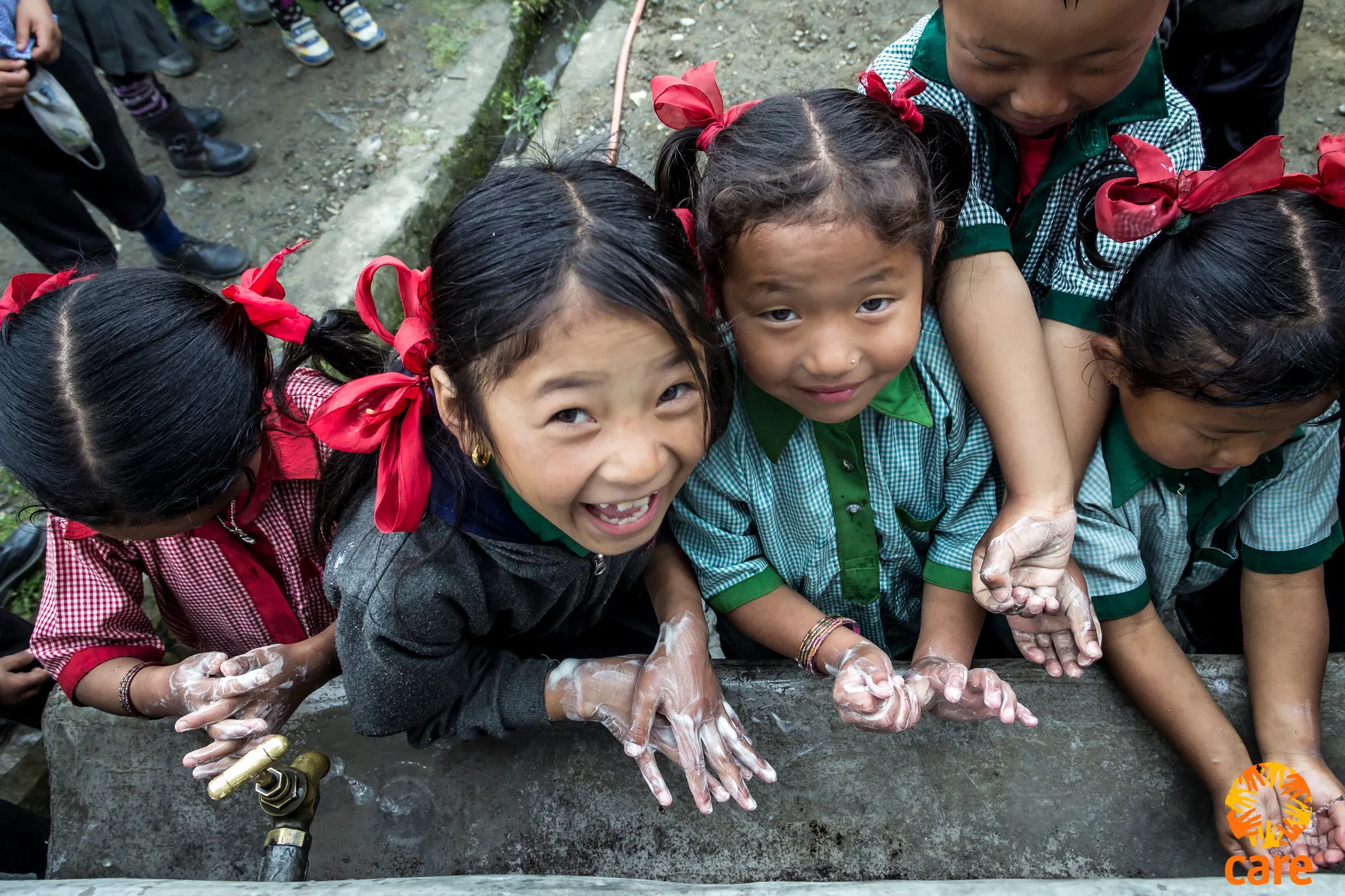If you visit many schools in poor countries or refugee camps, you will see kids washing their hands like they are scrubbing in for surgery. They are much more thorough than most Americans, where apparently 69% of men don’t wash their hands. What makes kids in crisis so smart about hand washing? Why are they following the best practice guidelines for how to wash your hands, even when running water is scarce? They understand that it could save their lives.
As we’re all learning, hand washing is one of the best defenses we have against all kinds of diseases (including COVID-19) better than wearing gloves. It’s the top tip WHO offers for slowing the spread of the virus. It saves lives all over the world. But a lot of people still don’t do it, even with the best access to resources, running water, and information. So how do we make it possible for more people? How do you get people who have little access to running water or soap to prioritize washing their hands?
CARE works all over the world to promote good hand washing as one of many healthy hygiene behaviors. Since 2015, we’ve helped more than 4.3 million people practice better hygiene during emergencies, and 2 million access better sanitation in crisis in more than 30 countries. It’s not just during emergencies. We work with people who don’t have regular access to running water all over the world so they can wash their hands more often.


